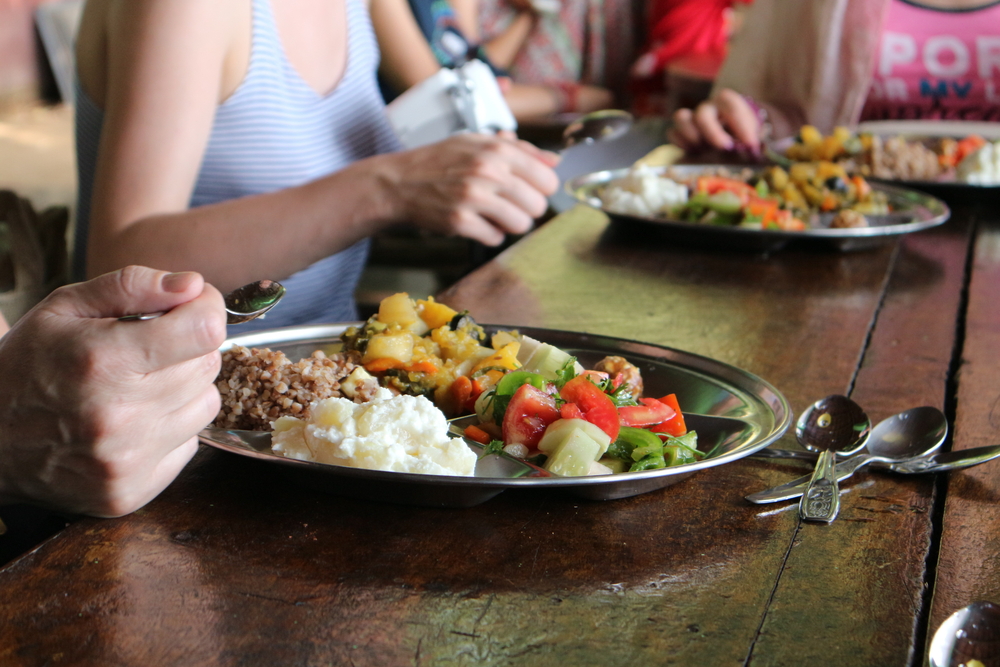Part of the Food Policy Snapshot Series
Policy name: Plant-based meals at Berlin universities
Overview: University cafeterias in Berlin are making their menus primarily plant-based in an effort to protect the environment.
Location: Berlin, Germany
Population: 3.6 million
Food policy category: Climate change, nutrition
Program goals: To reduce carbon emissions produced by the meat industry.
How it works: Starting in October, the 34 cafeterias serving students at 20 Berlin universities will become primarily meat-free. Only one meat option will be offered on four days of the week, with Mondays being completely meatless. The menus will be 68 percent vegan, 28 percent vegetarian, and only four percent containing meat or fish.
Examples of vegan and vegetarian meals on cafeteria menus include:
- buckwheat and spelt bowls topped with grilled sweet potatoes, marinated beetroot and sesame seeds
- pasta bakes with tomato and cheese
- marinated soy strips in curry
- vegetarian dumplings
- vegan vegetable stew with coconut milk and red lentils
- chickpea and quinoa bowl with vegetables and chia seeds.
Progress to date: The student support group Studierendenwerk spent the last one and a half years revising the cafeteria menus to respond to student demands for more climate-friendly options.
Why it is important: The livestock sector produces 14.5 percent of all man-made greenhouse gas emissions worldwide. If the world’s population shifted to a plant-based diet, greenhouse gases from food production could be reduced up to 70 percent by 2050.
Climate change is detrimental to the world’s food supply, as rising temperatures and natural disasters threaten crops and livestock. Reducing meat consumption is one small way that humans can reduce climate change and protect the environment.
Program/Policy initiated: The new plant-based menus will be in effect for the next school semester starting in October, 2021.
Point of contact: N/A
Similar practices: The University Catering Service at the University of Cambridge implemented a Sustainable Food Policy in 2016, which eliminated red meat and unsustainable fish from cafeteria menus. By 2019, the University Catering Service had reduced overall carbon emissions by 10.5 percent and there was a 33 percent reduction in carbon emissions per kilogram of food purchased by the company.
Evaluation: Formal evaluation has not yet been conducted, but the student response to the menu changes has been largely positive. In 2019, a survey showed that 13.5 percent of Berlin students followed a completely vegan diet, while another 33 percent were vegetarian.
Learn more:
- Eat Less Meat: UN Climate-Change Report Calls for Change to Human Diet (Nature)
- Meat Consumption, Behaviour and the Media Environment: A Focus Group Analysis Across Four Countries (Food Security)
- Reducing Meat Consumption in Developed and Transition Countries to Counter Climate Change and Biodiversity Loss: A Review of Influence Factors (Regional Environmental Change)
- Targeting the Structural Environment at Multiple Social Levels for Systemic Change: The Case of Climate Change and Meat Consumption (Journal of Social Marketing)
References:
- 34 Berlin University Canteens Ditch Meat For the Climate (Green Queen)
- Berlin Universities (Almost) Banish Meat from Canteens (DW)
- Berlin Universities Cut Meat from the Menu (Berlin.de)
- Berlin University Canteens Cut Meat from Menus to Curb Climate Change (BBC News)
- Berlin’s University Canteens Go Almost Meat-Free as Students Prioritise Climate (The Guardian)
- Removing Beef and Lamb from Menu Dramatically Reduces Food-Related Carbon Emissions at Cambridge University (University of Cambridge)
- Tackling Climate Change Through Livestock (Food and Agriculture Organization of the United Nations)
- A Vegan Diet: Eating for the Environment (Physicians Committee for Responsible Medicine)


